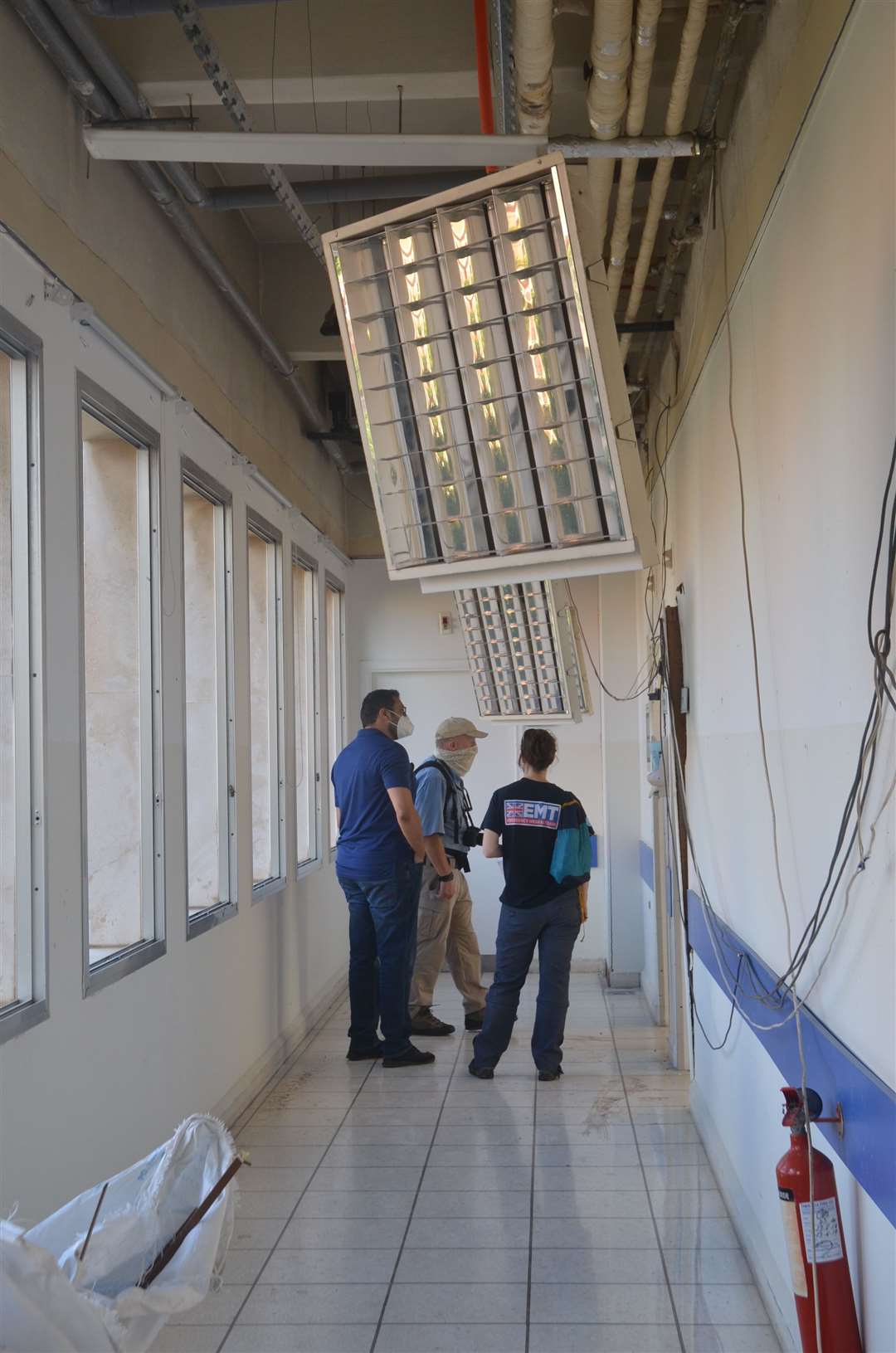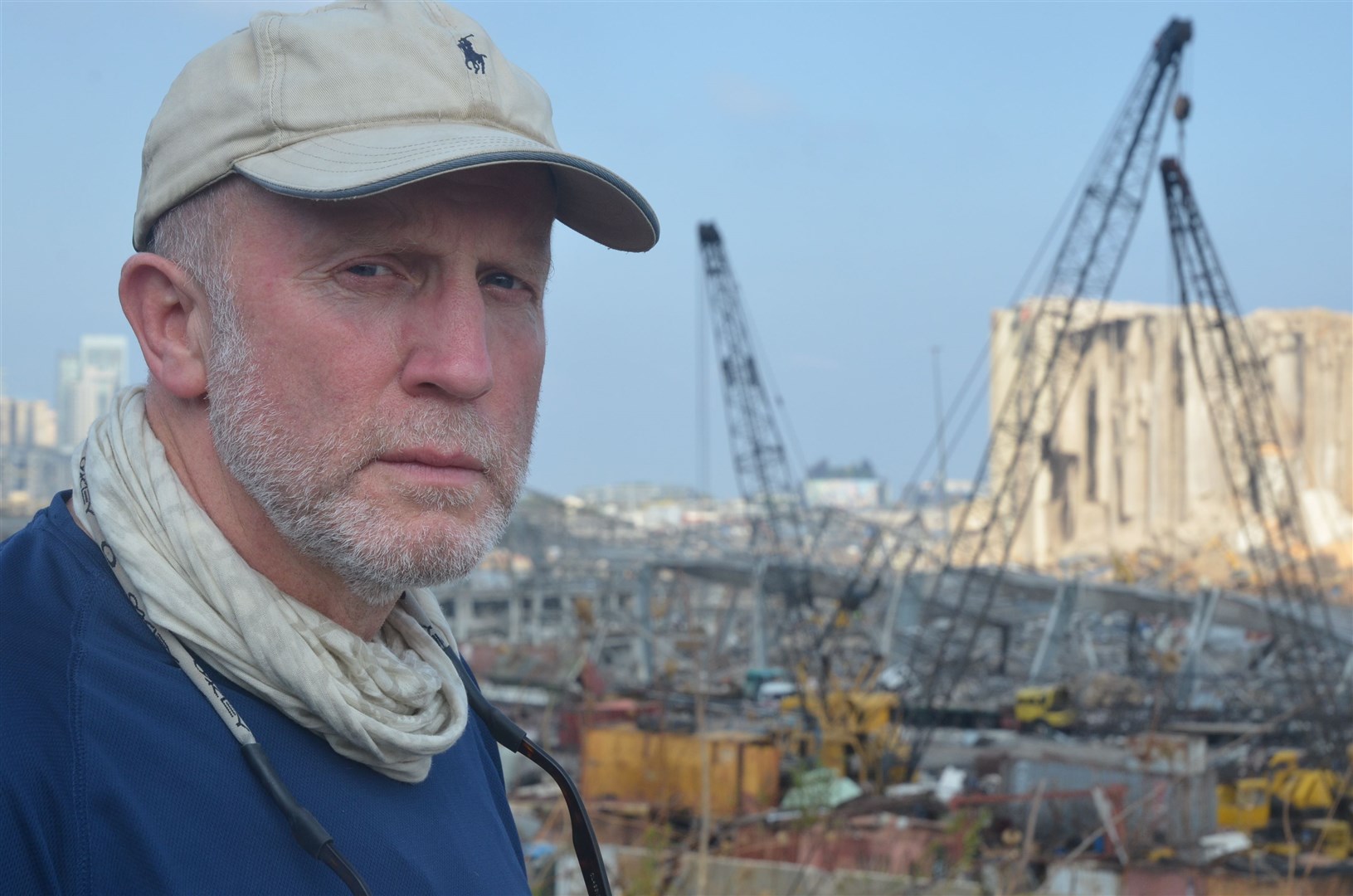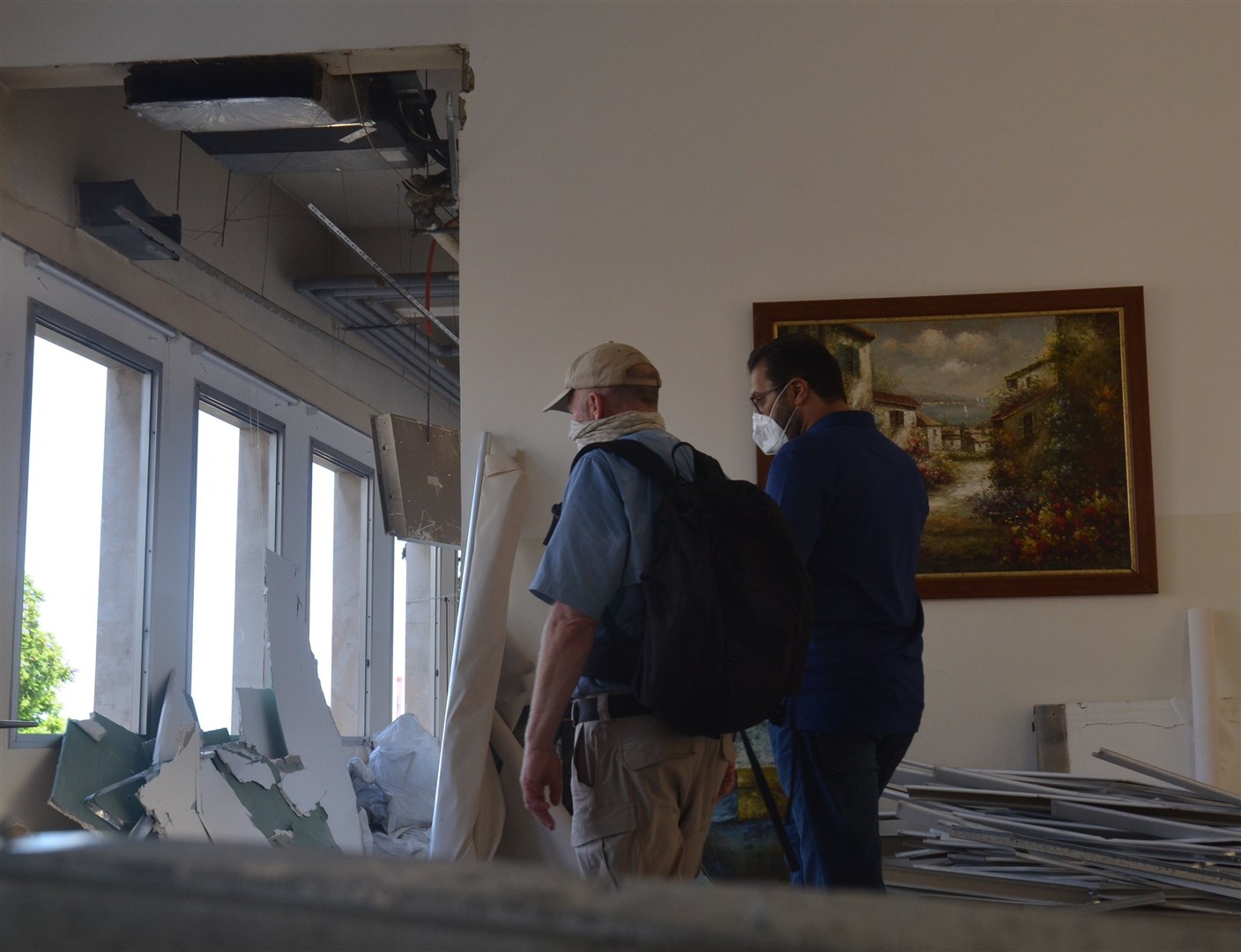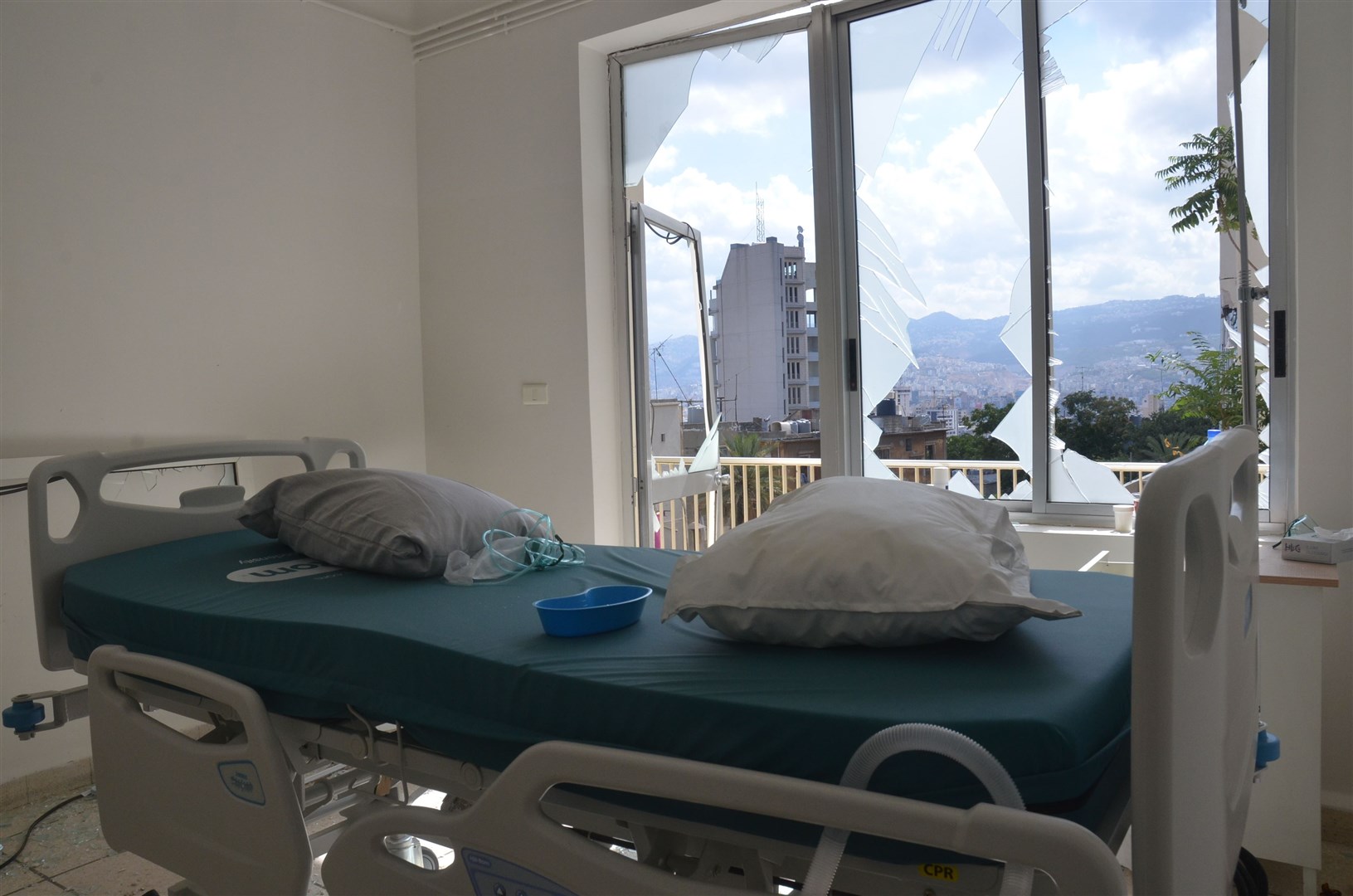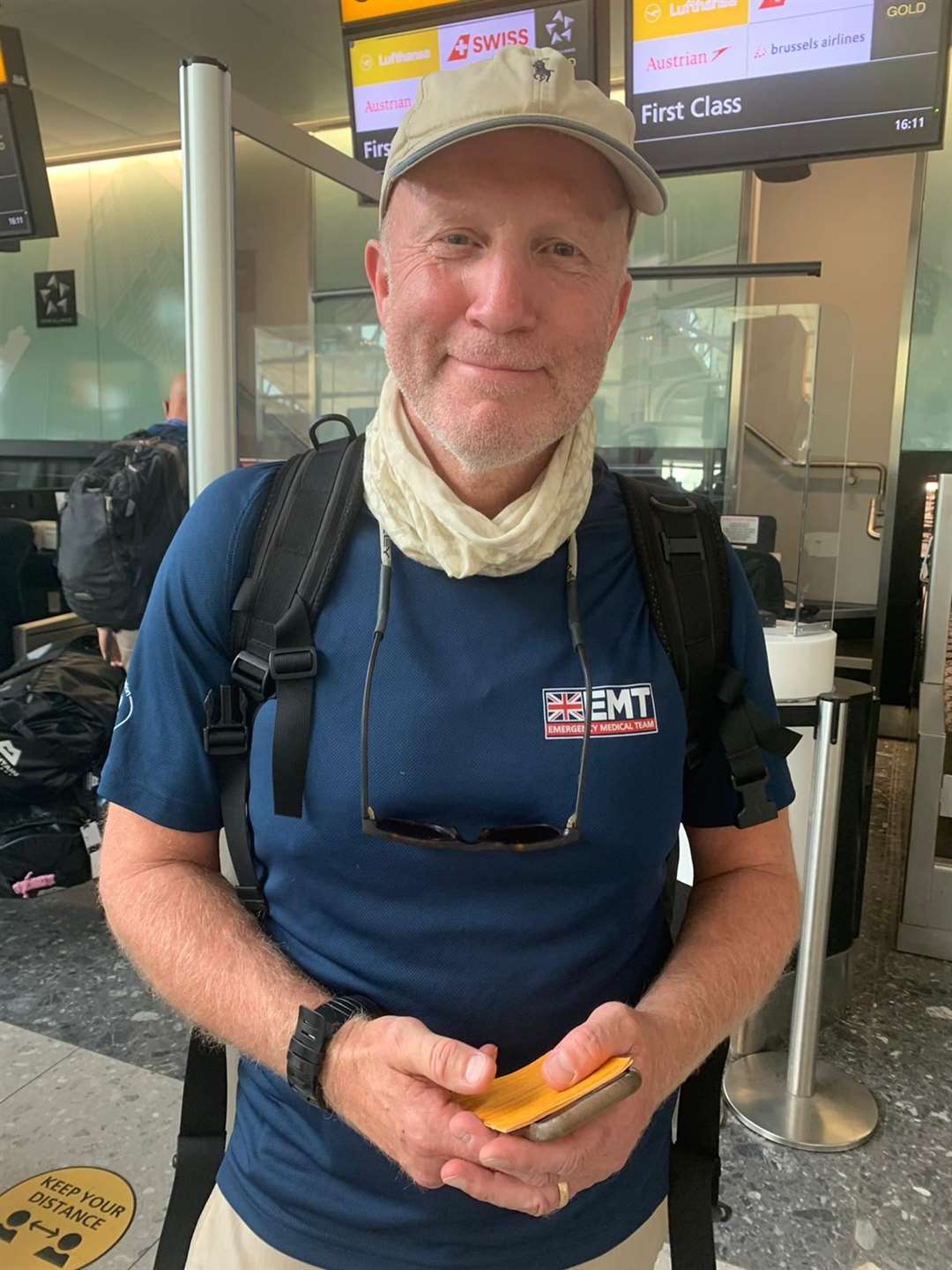Highland surgeon helping casualties of deadly Beirut docks explosion
Register for free to read more of the latest local news. It's easy and will only take a moment.
An Inverness medic has told of the humanitarian catastrophe facing the people of Beirut after flying out to help the stricken city following last week’s massive explosion.
Surgeon Andy Kent, based at Raigmore Hospital in Inverness, flew to the Lebanese capital within days of the explosion, which killed more than 200 people and injured 6000.
He revealed how even a career in the army failed to prepare him for the sheer scale of devastation and a health system on the point of collapse.
He said: “I did 17 years in the army but I don’t think any amount of training could prepare you for that volume of casualties in such a short space of time. The whole system was overwhelmed and in chaos.”
Working with charities UK-Med and Humanity Inclusion, he will report back to the Department for International Development on what help is needed.
He is part of the UK aid funded UK Emergency Medical Team (UK EMT) that was deployed to Beirut to help the Lebanese in the aftermath of last Tuesday’s devastating explosion.
The UK has pledged £20 million to the World Food Programme and £5 million to the emergency relief effort in Beirut.
Lebanon was already struggling with a spike in coronavirus cases when the blast hit.
Dad-of-four Mr Kent (56) said: “The problem in Lebanon goes a lot deeper than this blast – prior to that, the health system was teetering on the brink.
“Then it experienced a surge in coronavirus cases so all that is almost the perfect storm. With 6000 casualties into the system, it’s completely broken.
“Covid was becoming a huge problem before the blast – now we’re anticipating a huge surge.
“The anticipation is that these numbers will sky rocket and the implications of that is the medical services will be in dire straits.”
The UK EMT medics have been visiting affected health facilities across Beirut and meeting with Lebanese health workers and clinical staff, to get an in-depth understanding of how the multiple crises are affecting healthcare provision in Lebanon.
They've been listening to their assessment of outstanding needs and gaps, to build a comprehensive picture of how the UK can best support.
Many casualties will need long-term rehab after suffering slashed tendons and deep cuts to arms, legs and faces from flying glass.
Mr Kent, who also works on humanitarian response for the Royal College of Surgeons in Edinburgh and sits on the medical board of the Halo Trust mine-clearing charity, said: “The devastation is just horrendous – people were physically thrown by the blast wave against walls and buildings.
“People were literally picked up and thrown across their living rooms.”
Yet he said the death toll would have been up to “100 times a higher” had the blast rocked the city before the port and neighbouring offices emptied at the end of the day.
With the August 4 explosion believed to have been caused by thousands of tons of ammonium nitrate – which were stored in a warehouse – civil unrest is making life harder, with hospital visits disrupted by road blocks and demonstrations.
Mr Kent was deployed at just 24 hours notice and his army training meant he already had experience of dealing with civilian blast casualties after working in Iraq three years ago.
He added: “I’m very grateful to have a supportive wife and family and also my colleagues at Raigmore.
“When I first saw the blast in Beirut, I immediately realised that the number of casualties would be far higher than the number first estimated and that the injuries would be exactly the same type of injuries I was managing in Mosul, Northern Iraq, three years ago.
“As a trauma and orthopaedic consultant and trainer with 18 years experience at Raigmore Hospital, Inverness and having served in two Gulf wars and other conflicts, I've spent my life preparing for incidents like these.
“I'm proud to be part of UK Med and Humanity Inclusion team supporting the UK Emergency Medical Team's needs assessment in Beirut and am ready to help the Lebanese people as best I can.”
International development secretary Anne-Marie Trevelyan said: “The Lebanese people continue to be in our thoughts at this terrible time.
“The UK is sending these world-leading medics to use their expertise and to make sure the people of Lebanon get the help they need as quickly as possible.
“This field team comes on top of the UK’s substantial military support and aid package.
“We will do everything we can to help the people of Lebanon in their hour of need.”



